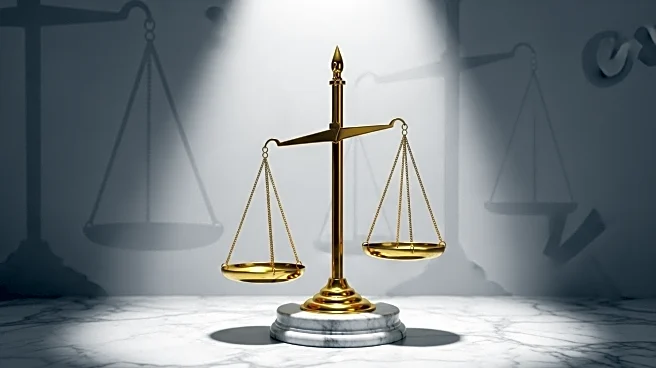What's Happening?
Rosen Law Firm, a prominent global investor rights law firm, is urging investors who purchased securities of RxSight, Inc. between November 7, 2024, and July 8, 2025, to secure legal counsel before the upcoming deadline for a securities class action lawsuit. The firm highlights the importance of the September 22, 2025, deadline for lead plaintiff applications. The lawsuit alleges that RxSight made false and misleading statements regarding its business operations, leading to investor losses when the truth was revealed. Rosen Law Firm emphasizes its track record in securities class actions and encourages investors to choose experienced legal representation.
Why It's Important?
The class action lawsuit against RxSight is significant as it addresses alleged corporate misrepresentation affecting investor decisions and financial outcomes. If successful, the lawsuit could result in compensation for affected investors, highlighting the importance of corporate transparency and accountability. The case underscores the role of law firms like Rosen in protecting investor rights and ensuring fair market practices. The outcome could influence investor confidence in RxSight and similar companies, potentially impacting stock prices and market behavior.
What's Next?
Investors interested in joining the class action must act before the September 22, 2025, deadline to serve as lead plaintiffs. The court will determine the certification of the class, which will affect the representation and potential recovery for investors. Rosen Law Firm continues to provide information and support for those affected, emphasizing the importance of selecting qualified legal counsel. The progression of the lawsuit will be closely watched by stakeholders, including investors, legal experts, and market analysts.
Beyond the Headlines
The lawsuit against RxSight raises broader questions about corporate governance and the ethical responsibilities of companies in providing accurate information to investors. It highlights the potential consequences of misleading statements on market dynamics and investor trust. The case may prompt other companies to reassess their disclosure practices and improve transparency to avoid similar legal challenges.









